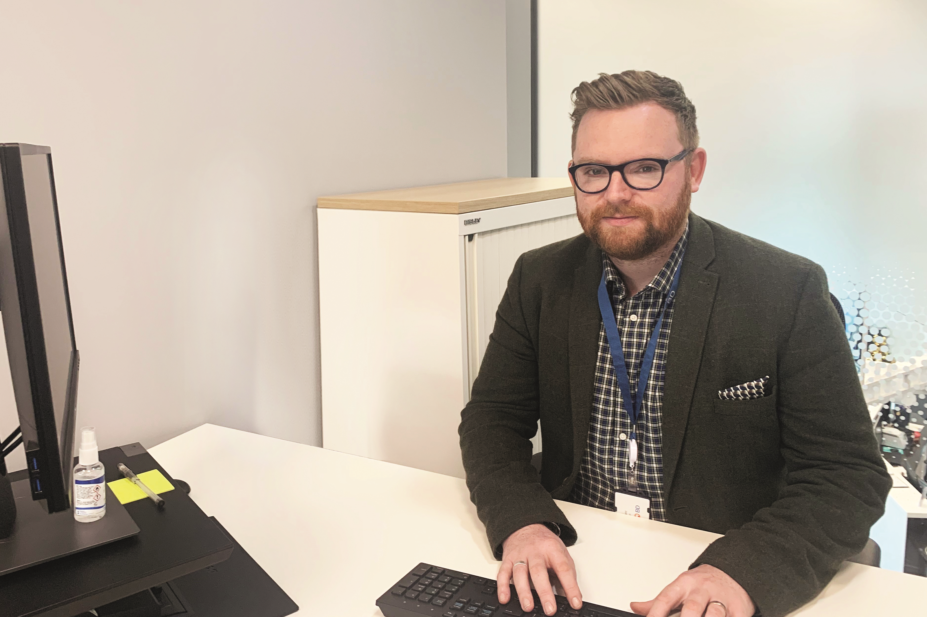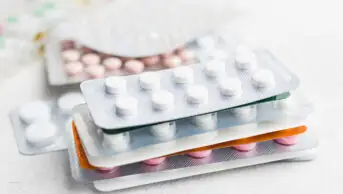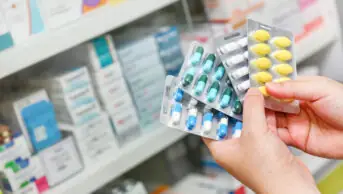
Chris Maguire
I am the marketing manager for Becton Dickinson (BD) UK and Ireland, mainly for the diabetes care business. BD is a large company with many business units — diabetes care is only one part of it, providing a medical technology, end-to-end solution for most hospital trusts and the community sector.
A typical day can be extremely varied. I could be working across functions and business units providing clinical training or negotiating with wholesalers.
My pharmacy background helps me in numerous ways. For example, it helps me stay relevant as I can speak holistically about the condition and its treatment with healthcare professionals, as opposed to just talking about the area of medical technology I work in now. I also review the drug tariff for changes, create protocols for primary care pharmacists on how to review their patients with regards to injection technique through their clinical systems, and I create clinical documents for training for the sales team with regards to diabetes.
08:00 — start
I have a teleconference with a project team. Luckily, I am working from home and don’t have to travel too far for an early start. We have a product launch coming up and the leaders, who are based in Switzerland, are providing an update on what’s happened over the past two weeks.
Colleagues taking part in the call are marketing managers and market access colleagues from other European and Middle Eastern countries; medical affairs; regulatory; project leaders from the United States/global teams; and supply chain. I have a few questions about what this update means for the UK: I get my answers, listen to other questions and say goodbye until our next scheduled meeting in two weeks’ time. Following this conversation, I have a few queries for local experts, such as diabetes specialist nurses and endocrinologists, who I will contact during the week.
10:00
I attend another teleconference, this time with BD’s European vice president, financial manager and some of the portfolio leads in Europe, to go over how the business is doing, set our forecasts for the next month, discuss opportunities and risks, and answer any questions they might have.
11:00
I have a Skype meeting with my junior product manager. We are running some digital campaigns where we are trying to highlight our online education tool for patients — ‘BD and Me’. We run through the sign-up numbers for healthcare professionals and patients to determine acquisition channels. For example, via digital means or through the sales team.
I’ve prepared an analysis of all the clinical commissioning groups and health boards in the UK through our data analytics tool
12:00
I speak to the UK sales leaders over the phone about how the teams are performing. I’ve prepared an analysis of all the clinical commissioning groups (CCGs) and health boards in the UK through our data analytics tool. I’m able to talk through the sales team’s efforts and measure impact by analysing prescription data results. We review whether any marketing campaigns have brought any leads to the team and the implications for the business. We also plan some training sessions for a conference we will be attending the following week.
13:00
I have a local meeting with the diabetes specialist nursing team as I am helping to train the hospital ward staff on injection technique and safe use of insulin.
The nursing team are well versed in this already, but the ward nurses do not manage this one aspect of diabetes care regularly, so a refresher course is beneficial for them, as well as new staff and staff returning to work.
14:00
I have a call regarding the Clinical Pharmacy Congress, which is being held on 7–8 June 2019 at the ExCeL in London, as BD is attending. We organise speakers for the day who will discuss injection technique to educate pharmacists.
I am also speaking at the event about alternative careers for pharmacists and will discuss my own career journey through community, primary care and now industry. We need to determine the logistics for getting our booth made, getting materials sent and payments, among other things.
15:00
I have a clinical call with the medical affairs team — I work on both the commercial and clinical side of the business. We are running a number of projects for value-based healthcare, showing local CCGs and health boards that we are able to provide solutions. We can help people with their skills, improve patient outcomes and reduce costs to the area. We have all the evidence from studies and health economics and outcomes research models. We review protocols and timelines for the first project, and adjust some of the clinical training that was originally developed for nurses; but I’ve been pushing for pharmacists to be involved as well.
I’m delighted I’ve been able to enter the commercial side of industry and would recommend other companies recruit more pharmacists to do the same
16:00
I finally have time to work on something that doesn’t require a phone call.
I need to create some collateral for one of our marketing campaigns. I review clinical papers to back up any claims I want to use in a one-page summary document and then add the images I want to use and the message I want to convey in each part of the document. I put together a rough draft, alongside a full briefing document. I am semi-skilled in putting these things together but our creative team are the experts; as I can’t always be in the office to meet them, I try and provide a detailed brief to facilitate the process and remove ambiguity. Sometimes they come back with better ideas for layouts, but mostly they seem to follow my designs and thoughts. I’ll make a few more tweaks and submit for regulatory, clinical and legal sign off. There is a bit of effort required, but it ensures all promotional material is appropriate and complies with regulations. The more I do this, the better we get with the process. I’m always learning.
17:00 — final call of the day
A member of the sales team has contacted me for advice regarding one of her CCG accounts. I am able to provide her with information about how to interact with a new local primary care network that has been set up, thanks to my existing social media contacts within pharmacy and general practice.
It’s a long day of calls and meetings, but it’s also a fantastic job and one which enables me to use all the skills I have learnt over the years as a pharmacist, while allowing me to develop and stretch myself further. I’m delighted that I’ve been able to enter the commercial side of industry and would recommend other companies recruit more pharmacists to do the same. We are an invaluable resource to have in any workforce.
Box: How to get a job as a marketing manager in industry
- Get your foot in the door through either a sales, market access, product manager or medical affairs role to help you develop an understanding of the business.
- A marketing manager role requires at least five years’ career experience to demonstrate an understanding of the NHS primary and secondary care models, and that you have worked in different roles at different levels of seniority. It has taken me ten years to get to this position.
- Completing the Association of the British Pharmaceutical Industry compliance exams, final signatory qualifications or doing a marketing diploma will demonstrate your drive to get into industry.
- Always ask for more — stretch yourself and try to succeed. I managed people and projects in all my previous roles in community and primary care, and took on responsibility for something outside of the traditional pharmacy roles.


